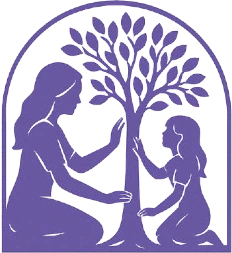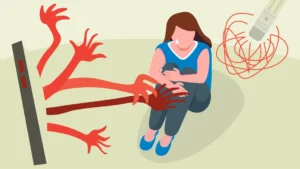Grief is a deeply personal journey, yet it’s also a universal experience. If you’ve lost someone or something meaningful, you’re not alone—my aim is to support and guide you through the pain, help you develop resilience, and find renewed meaning in life.
What Is Grief?
Defining Grief and Mourning
Grief is a natural response to loss. It isn’t only about death—it can include losing relationships, health, identity, or major life changes. Mourning is the intentional expression and ritual of grief. Recognizing both is the first step toward healing.
Common Emotional, Physical, and Behavioral Symptoms
People navigating grief often feel sadness, anger, guilt, confusion, or even numbness. Physically, grief can show up as fatigue, muscle tension, stomach aches, or changes in sleep and appetite. Behaviorally, you might withdraw, find it hard to concentrate, or immerse yourself in work. These reactions are normal and often the mind and body’s way of processing.
Different Types of Grief
Anticipatory Grief
This grief happens when you expect a loss—like watching a loved one decline due to illness. Anxiety, preemptive sadness, and tension are common.
Complicated Grief
When grief remains intense and debilitating months later, affecting daily life, it may signal complicated grief. Therapy can help address and resolve these prolonged symptoms.
Disenfranchised Grief
This occurs when someone else’s loss isn’t socially recognized—like the death of a pet, a caregiver role, or estranged family. People may feel isolated or invalidated.
Collective or Communal Grief
Events like natural disaster, violence, or social upheaval can cause shared grief. You might benefit from community-based healing work.
You’re Not Alone: Normalizing Grief
Shared Human Experience
Everyone grieves at some point. Although the journey is personal, you’re part of a collective story of loss and healing.
How Grief Shows Up Differently in Everyone
Your experience may differ from others in intensity and timeline. No two grief journeys are alike, and that’s okay.
How I Help You Tackle Grief
Creating a Safe, Non-Judgmental Space
My role is to listen deeply, validate your experience, and create a collaborative environment for healing.
Evidence-Based Techniques
- Narrative Therapy: Rewriting your story to find hope and meaning.
- EMDR (Eye Movement Desensitization & Reprocessing): Especially useful for traumatic grief.
- Cognitive Behavioral Approaches: Helping reframe negative thoughts.
Building Coping Skills and Resilience
We work together on mindfulness, grounding, self-compassion, and pacing—your journey, in your own time.
Ongoing Support and Follow-Up
Healing isn’t a one-off. I’ll be with you through check-ins, workshops, or referrals as needed.
Practical Strategies for Dealing with Grief
Mindfulness and Self-Compassion Practices
Techniques like body scans, breathwork, and loving-kindness meditation soften the impact of difficult emotions.
Journaling and Expressive Writing
Putting thoughts on paper creates clarity, helps process complex emotions, and reveals patterns.
Grounding Techniques and Body Awareness
Exercises like the 5-4-3-2-1 method or gentle movement reconnect you to the present moment and your body.
Creating Meaning and Rituals
Whether lighting a candle, planting a tree, or sharing stories, symbolic actions foster closure and remembrance.
Grief in Special Situations
Loss of a Loved One vs Other Losses
Grief is grief—but society treats certain losses as more legitimate. Pet owners, for instance, deserve grief support, too.
Grief After Job Loss, Divorce, Pet Loss
All significant losses require grieving. Acknowledging and naming them empowers your healing.
When to Seek Extra Support
Recognizing Signs of Complicated Grief
Signs include persistent despair, avoidance of reminders, or loss of trust. If grief severely affects daily function past six months, professional help is key.
FAQs About Grief
Is my grief normal?
Yes. Grief is highly individual and comes in waves—what you feel is valid.
How long do grief symptoms last?
There’s no set timeline. While many find major relief within 6–12 months, grief can resurface during life milestones or anniversaries.
Can grief lead to depression?
If symptoms worsen, deepen, or include suicidal thoughts, it may be depression. Reach out for mental-health support.
Is it okay to feel relief after a loved one dies?
Absolutely. Relief from suffering or responsibility is natural and doesn’t mean you don’t love or miss them.
How can family support me?
Encourage conversation, listen without judgment, offer tangible help, and respect your pace.
What if my grief gets worse?
It happens. Grief can ebb and flow—yet if feelings intensify over time, connect with a professional for additional support.






